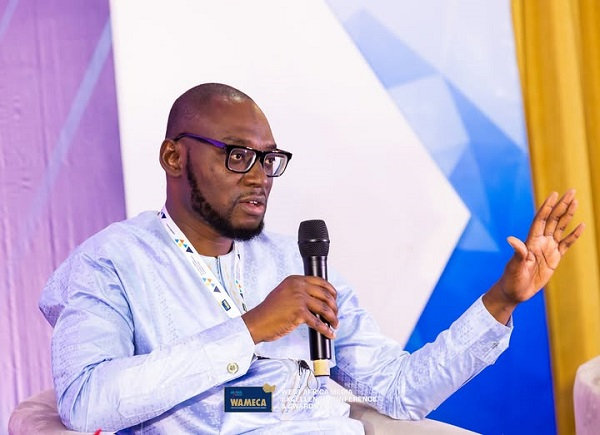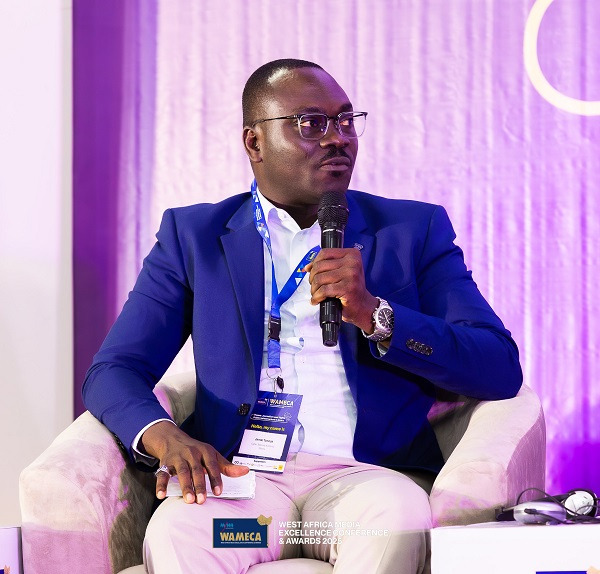Illicit financial flows (IFFs) continue to be a major obstacle to the development of many African countries, including Ghana and the continent as a whole.
Data from the United Nations Conference on Trade and Development (UNCTAD), the Economic Commission for Africa (ECA), and the African Development Bank (AfDB) all show that the African continent loses about $90 billion annually to IFFs.
This figure, which constitutes about 4 percent of the continent’s Gross Domestic Product (GDP), would undoubtedly help the development process of the continent, but each year ends up in private pockets through illegal means.
These IFFs are often in the form of corporate tax evasion, illegal trade, profit-shifting, as well as import and export invoice manipulation.
The issue of illicit financial flows was one of the major challenges that was discussed at the 2025 West Africa’s Media Excellence Conference and Awards (WAMECA) from Thursday, October 9, 2025, to Saturday, October 11, 2025.
Ghana’s $1.4 Billion Leak: The unseen crisis of illicit financial flows
On the second day of the event, Friday, October 10, 2025, a panel made up of Oxfam’s Accountable Governance Programme and Policy Manager, Mohammed Mahamud; Acting Deputy Director-General of the Cyber Security Authority (CSA), Dr Jamal Tonzua Seidu; Head of Sales at Brij Technologies, Nana Ama Oforiwaa Antwi; and Senegalese IFFs expert, Dr Amaye Sy, delved into the issue of IFFs in Africa.
The session was moderated by the Business & Financial Times Ghana’s Online News Editor, Juliet Etete.
Dr Amaye Sy, during his contribution, painted a picture of how extensive the issue of IFFs is in Africa and its cross-border nature.
He pointed out that a chunk of Illicit Financial Flows come from multinational organisations that widen their profit margins in order to avoid paying taxes in their home countries.
“The major contributor to Illicit Financial Flows is base erosion and profit shifting, which is mostly perpetrated by multinational corporations,” he said in French.
Dr Amaye Sy said that tackling IFFs is critical to the continent’s financial independence, saying, “If Africa can ever be financially independent, we need to focus on the flow of income from the continent through illicit means.”

Dr Amaye Sy
He added that African governments must strengthen cooperation with regional and international bodies to effectively tackle the issue of IFFs.
“We need to strike a balance between regulation and implementation within both the private and public sectors to effectively combat Illicit Financial Flows,” he said.
The Acting Deputy Director-General of the Cyber Security Authority (CSA), Dr Jamal Tonzua Seidu, in his contribution to the discussion, reiterated the call for international collaboration in the fight against IFFs.
“We need effective threat intelligence sharing and coordination within our domestic systems. Fintech solutions and emerging technologies can be powerful tools for tracing illicit transactions,” he noted.
Dr Tonzua Seidu cited the example of how collaboration between Ghanaian and United States security authorities led to recent busts and extraditions of members of international criminal syndicates in Ghana, who stole millions of dollars from Americans through cyber and romance scams and managed to launder the proceeds of their activities into Ghana.

Dr Tonzua Seidu
On his part, Mohammed Mahamud, Oxfam’s Accountable Governance Programme and Policy Manager, sounded a caution on the use of Fintech to fight Illicit Financial Flows, describing it as a two-edged sword.
He pointed out that although Fintech presents a solution to the issue of IFFs, it can also be used to advance these activities.
Government urged to block loopholes enabling illicit financial flows
“Corruption in respect of illicit financial flows is about corporate corruption, and Fintechs are a double-edged sword; very good in supporting government to combat illicit financial flows by, i.e., improving transaction transparency, ensuring real-time monitoring, providing opportunities to identify and verify identity using biometrics. They can also promote money laundering. Tax evasion and default are perpetrated using the digital platforms that we have,” he cautioned.
Mohammed Mahamud indicated that the key to fighting illicit financial flows is effective oversight of activities in the sector by Ghanaians.
“We recognise that governments are seized with the mandate and responsibility to respond to illicit financial flows. And so, if governments are able to use the data (provided by Oxfam) to establish linkages of how corporate bodies are behaving in ways that promote illicit financial flows, we support the government to strengthen its fiscal regimes and build capacity to be able to navigate the complexities in the illicit financial flow sector,” he added.
The discussion, which was on the theme “Guaranteeing Africa’s Financial Independence: The Role of Fintechs in Combating IFFs”, was organised by the Media Foundation for West Africa in partnership with Oxfam under the Increase Domestic Resource Mobilisation (DRM) project, supported by DANIDA.
Aside from the discussions, the project also saw the training of about 80 financial, business, economic, and investigative journalists across four regions, supported a three-month investigative fellowship for 10 emerging reporters, and facilitated in-depth media coverage and programming on IFFs.
BAI/AE
Watch the latest episode of Health Focus below
Watch as Ghanaians share bold ideas to end galamsey
